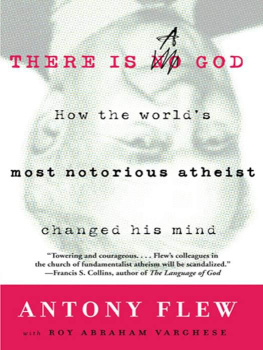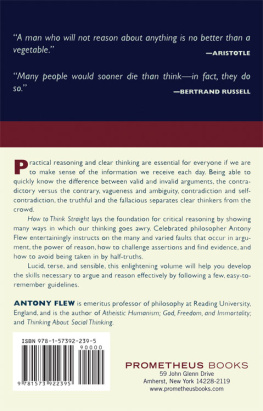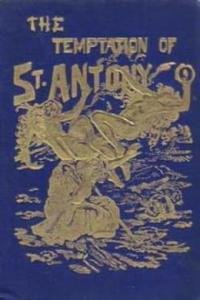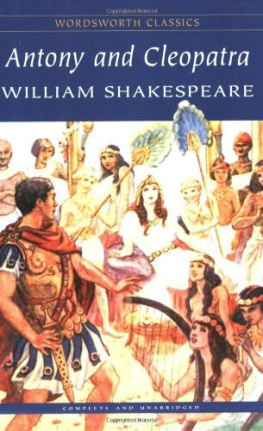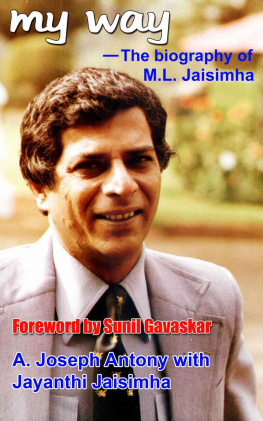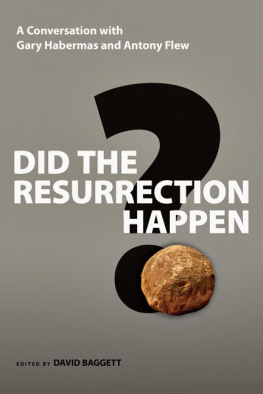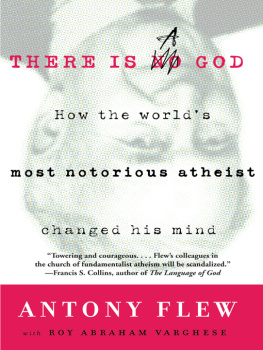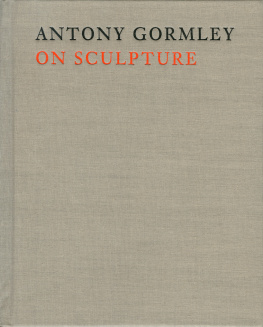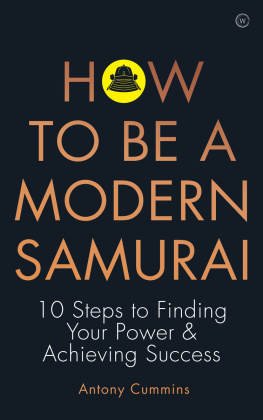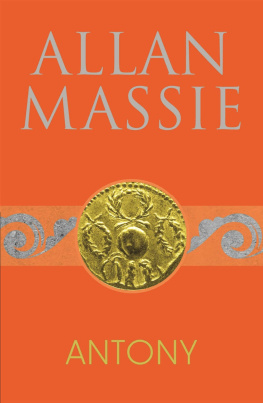Antony Flew - There Is a God
Here you can read online Antony Flew - There Is a God full text of the book (entire story) in english for free. Download pdf and epub, get meaning, cover and reviews about this ebook. year: 2009, publisher: HarperCollins, genre: Religion. Description of the work, (preface) as well as reviews are available. Best literature library LitArk.com created for fans of good reading and offers a wide selection of genres:
Romance novel
Science fiction
Adventure
Detective
Science
History
Home and family
Prose
Art
Politics
Computer
Non-fiction
Religion
Business
Children
Humor
Choose a favorite category and find really read worthwhile books. Enjoy immersion in the world of imagination, feel the emotions of the characters or learn something new for yourself, make an fascinating discovery.
- Book:There Is a God
- Author:
- Publisher:HarperCollins
- Genre:
- Year:2009
- Rating:5 / 5
- Favourites:Add to favourites
- Your mark:
- 100
- 1
- 2
- 3
- 4
- 5
There Is a God: summary, description and annotation
We offer to read an annotation, description, summary or preface (depends on what the author of the book "There Is a God" wrote himself). If you haven't found the necessary information about the book — write in the comments, we will try to find it.
There Is a God — read online for free the complete book (whole text) full work
Below is the text of the book, divided by pages. System saving the place of the last page read, allows you to conveniently read the book "There Is a God" online for free, without having to search again every time where you left off. Put a bookmark, and you can go to the page where you finished reading at any time.
Font size:
Interval:
Bookmark:
How the Worlds
Most Notorious Atheist
Changed His Mind

PART II:
MY DISCOVERY OF THE DIVINE
F amous Atheist Now Believes in God: One of Worlds Leading Atheists Now Believes in God, More or Less, Based on Scientific Evidence. This was the headline of a December 9, 2004, Associated Press story that went on to say: A British philosophy professor who has been a leading champion of atheism for more than a half century has changed his mind. He now believes in God more or less based on scientific evidence, and says so on a video released Thursday. Almost immediately, the announcement became a media event touching off reports and commentaries around the globe on radio and TV, in newspapers and on Internet sites. The story gained such momentum that AP put out two subsequent releases relating to the original announcement. The subject of the story and of much subsequent speculation was Professor Antony Flew, author of over thirty professional philosophical works that helped set the agenda for atheism for half a century. In fact, his Theology and Falsification, a paper first presented at a 1950 meeting of the Oxford University Socratic Club chaired by C. S. Lewis, became the most widely reprinted philosophical publication of the last century. Now, for the first time, he gives an account of the arguments and evidence that led him to change his mind. This book, in a sense, represents the rest of the story.
I played a small part in the AP story because I had helped organize the symposium and resulting video in which Tony Flew announced what he later humorously referred to as his conversion. In fact, from 1985, I had helped organize several conferences at which he had made the case for atheism. So this work is personally the culmination of a journey begun two decades ago.
Curiously, the response to the AP story from Flews fellow atheists verged on hysteria. One atheist Web site tasked a correspondent with giving monthly updates on Flews falling away from the true faith. Inane insults and juvenile caricatures were common in the freethinking blogosphere. The same people who complained about the Inquisition and witches being burned at the stake were now enjoying a little heresy hunting of their own. The advocates of tolerance were not themselves very tolerant. And, apparently, religious zealots dont have a monopoly on dogmatism, incivility, fanaticism, and paranoia.
But raging mobs cannot rewrite history. And Flews position in the history of atheism transcends anything that todays atheists have on offer.
FLEWS SIGNIFICANCE IN THE
HISTORY OF ATHEISM
It is not too much to say that within the last hundred years, no mainstream philosopher has developed the kind of systematic, comprehensive, original, and influential exposition of atheism that is to be found in Antony Flews fifty years of antitheological writings. Prior to Flew, the major apologias for atheism were those of Enlightenment thinkers like David Hume and the nineteenth-century German philosophers Arthur Schopenhauer, Ludwig Feuerbach, and Friedrich Nietzsche.
But what about Bertrand Russell (who maintained rather implausibly that he was technically an agnostic, although he was an atheist in practice), Sir Alfred Ayer, Jean-Paul Sartre, Albert Camus, and Martin Heidegger, all of whom were twentieth-century atheists well before Flew began writing? In Russells case, it is quite obvious that he did not produce anything beyond a few polemical pamphlets on his skeptical views and his disdain for organized religion. His Religion and Science and Why I Am Not a Christian were simply anthologies of articleshe produced no systematic philosophy of religion. At best, he drew attention to the problem of evil and sought to refute traditional arguments for Gods existence without generating any new arguments of his own. Ayer, Sartre, Camus, and Heidegger have this in common: their focus was on generating a specific way of engaging in philosophical discussion, an aftereffect of which was the denial of God. They had their own systems of thought of which atheism was a by-product. You had to buy into their systems to buy into their atheism. The same might be said of later nihilists like Richard Rorty and Jacques Derrida.
Of course, there were major philosophers of Flews generation who were atheists; W. V. O. Quine and Gilbert Ryle are obvious instances. But none took the step of developing book-length arguments to support their personal beliefs. Why so? In many instances, professional philosophers in those days were disinclined to dirty their delicate hands by indulging in such popular, even vulgar, discussions. In other cases, the motive was prudence.
Certainly, in later years, there were atheist philosophers who critically examined and rejected the traditional arguments for Gods existence. These range from Paul Edwards, Wallace Matson, Kai Nielsen, and Paul Kurtz to J. L. Mackie, Richard Gale, and Michael Martin. But their works did not change the agenda and framework of discussion the way Flews innovative publications did.
Where does the originality of Flews atheism lie? In Theology and Falsification, God and Philosophy, and The Presumption of Atheism, he developed novel arguments against theism that, in some respects, laid out a road map for subsequent philosophy of religion. In Theology and Falsification he raised the question of how religious statements can make meaningful claims (his much-quoted expression death by a thousand qualifications captures this point memorably); in God and Philosophy he argued that no discussion on Gods existence can begin until the coherence of the concept of an omnipresent, omniscient spirit had been established; in The Presumption of Atheism he contended that the burden of proof rests with theism and that atheism should be the default position. Along the way, he of course analyzed the traditional arguments for Gods existence. But it was his reinvention of the frames of reference that changed the whole nature of the discussion.
In the context of all of the above, Flews recent rejection of atheism was clearly a historic event. But it is little known that, even in his atheist days, Flew had, in a sense, opened the door to a new and revitalized theism.
FLEW, LOGICAL POSITIVISM, AND THE REBIRTH OF RATIONAL THEISM
Heres the paradox. By defending the legitimacy of discussing theological claims and challenging philosophers of religion to elucidate their assertions, Flew facilitated the rebirth of rational theism in analytic philosophy after the dark days of logical positivism. A little background information will be of value here.
Logical positivism, as some might remember, was the philosophy introduced by a European group called the Vienna Circle in the early 1920s and popularized by A. J. Ayer in the English-speaking world with his 1936 work Language, Truth and Logic. According to the logical positivists, the only meaningful statements were those capable of being verified through sense experience or true simply by virtue of their form and the meaning of the words used. Thus a statement was meaningful if its truth or falsehood could be verified by empirical observation (e.g., scientific study). The statements of logic and pure mathematics were tautologies; that is, they were true by definition and were simply ways of using symbols that did not express any truth about the world. There was nothing else that could be known or coherently discussed. At the heart of logical positivism was the verification principle, the claim that the meaning of a proposition consists in its verification. The result was that the only meaningful statements were those used in science, logic, or mathematics. Statements in metaphysics, religion, aesthetics, and ethics were literally meaningless, because they could not be verified by empirical methods. They were neither valid nor invalid. Ayer said that it was just as absurd to be an atheist as to be a theist, since the statement God exists simply has no meaning.
Font size:
Interval:
Bookmark:
Similar books «There Is a God»
Look at similar books to There Is a God. We have selected literature similar in name and meaning in the hope of providing readers with more options to find new, interesting, not yet read works.
Discussion, reviews of the book There Is a God and just readers' own opinions. Leave your comments, write what you think about the work, its meaning or the main characters. Specify what exactly you liked and what you didn't like, and why you think so.

